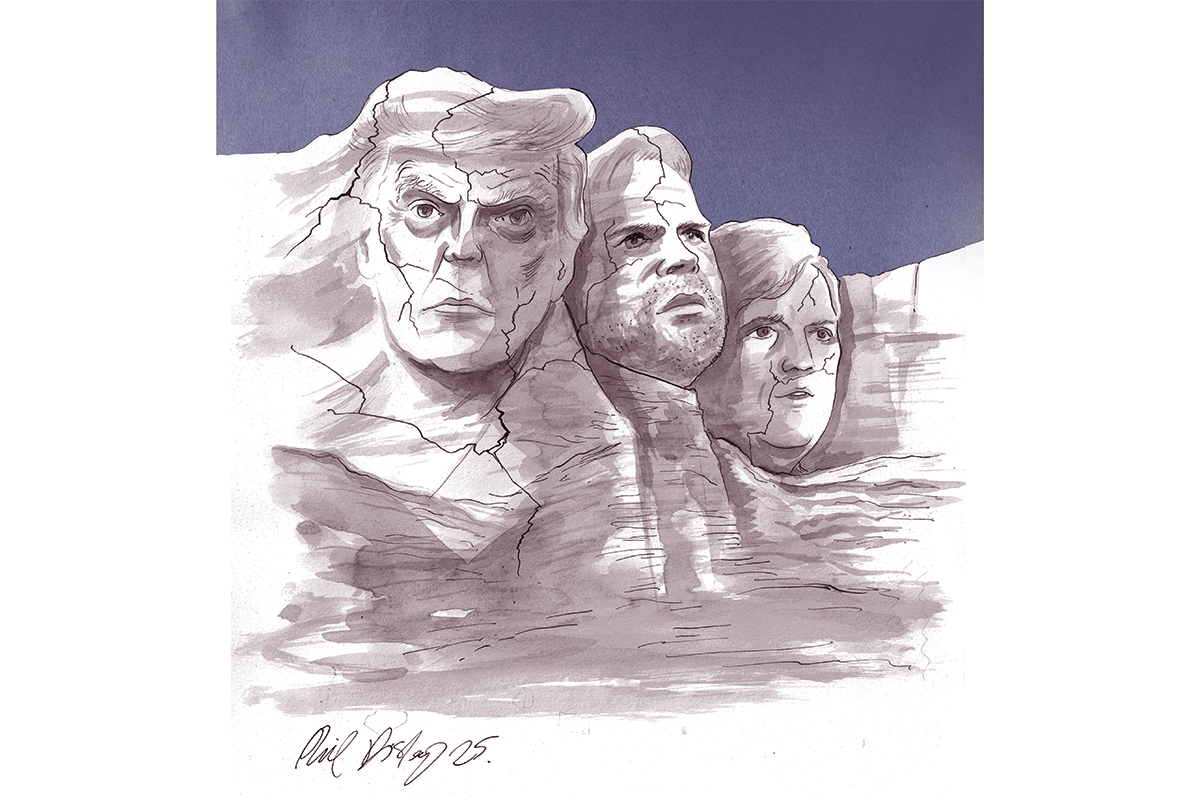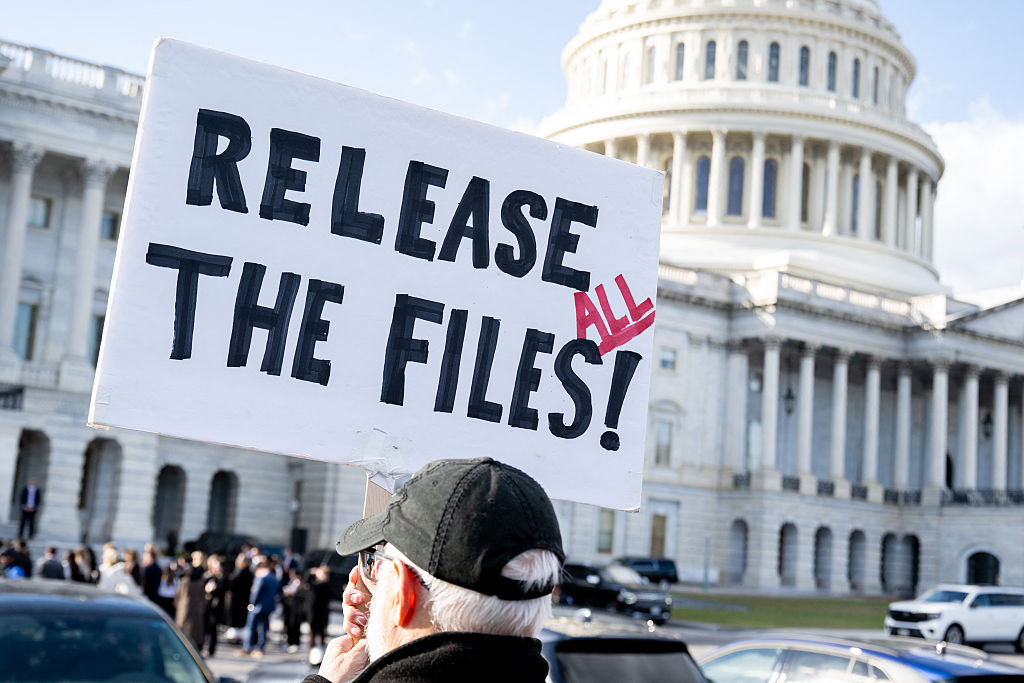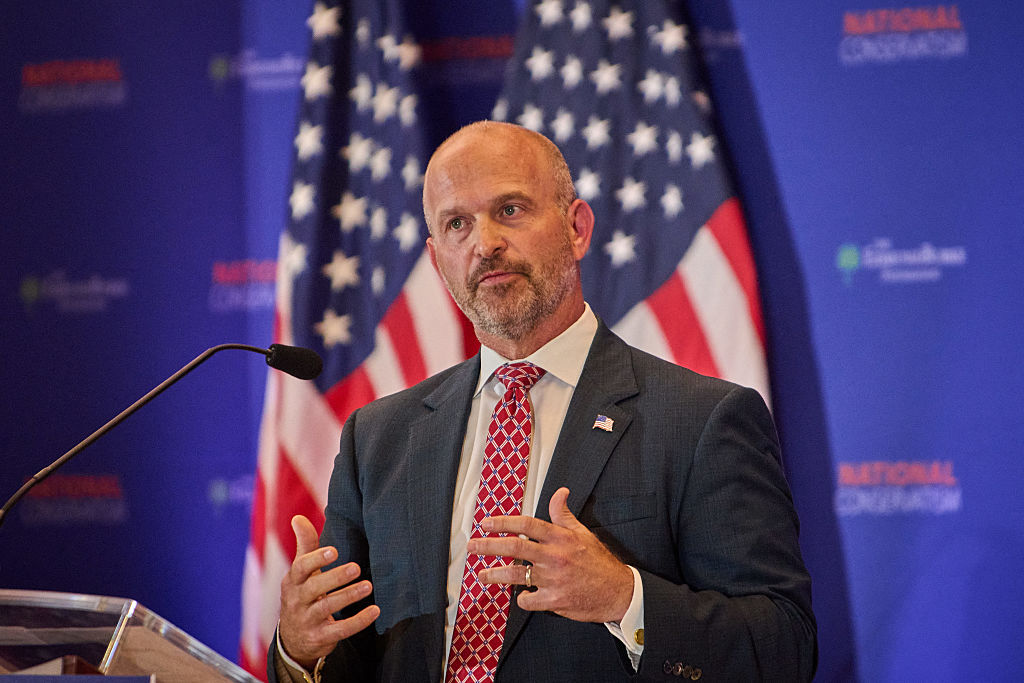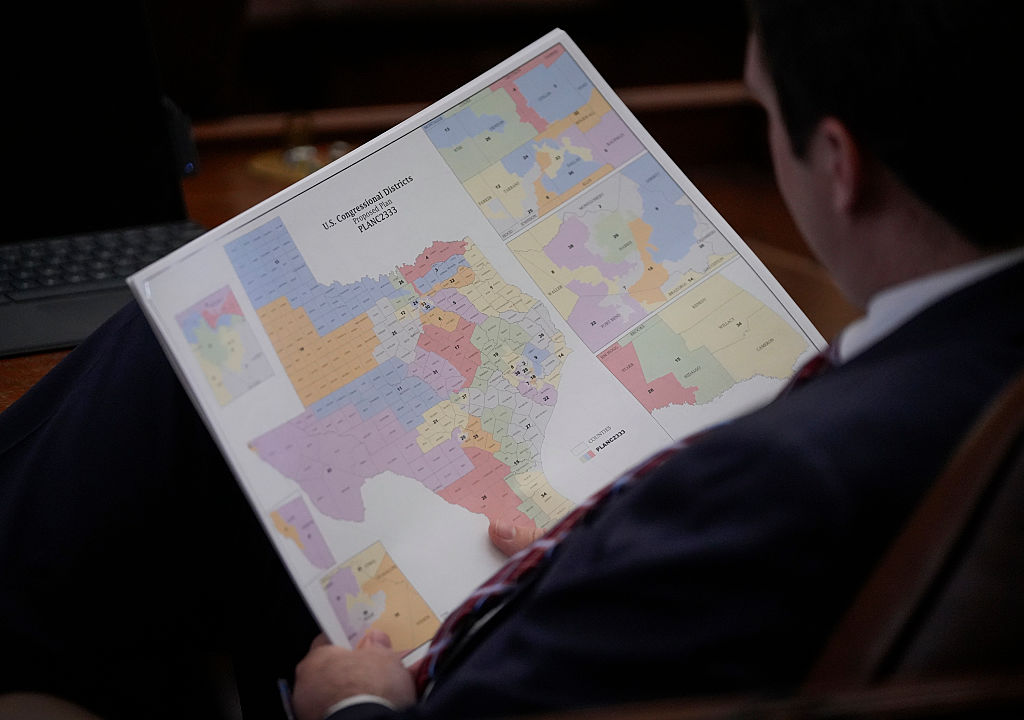“Mass deportation now, set fire to all the fucking hotels full of the bastards for all I care, while you’re at it take the treacherous government & politicians with them. I feel physically sick knowing what these families will now have to endure. If that makes me racist, so be it.”
Those 51 words earned Lucy Connolly – a babysitter from Northampton, in the East Midlands of England – the longest sentence ever handed down in the UK for a single social-media post. Last week, Connolly was released from prison, having served nine months of a 31-month term for “inciting racial hatred.”
She will serve the rest of her sentence on probation. But she is not going back to a quiet life, it seems. Indeed, she is fast becoming a totem in the transatlantic culture war over Britain’s speech laws. Connolly is in touch with the Trump administration. Reform UK leader Nigel Farage is spoiling to bring her to the US, to sit alongside him when he testifies to Congress next month about the parlous state of free speech in Britain – a stunt which will probably be scuppered by the travel restrictions imposed by Connolly’s early release.
If that’s the case, Farage won’t struggle to find another mascot. Indeed, Connolly’s speech crime is almost unusual in that what she said was genuinely vile and inflammatory. You can be locked up for a lot less in the UK these days. At least 30 people a day are now arrested in the UK for what they post online. Said speech criminals include a feminist who dared to call a man a man on social media, and a prankster who posted a selfie of himself dressed like the Manchester Arena bomber.
But Connolly’s case has undoubtedly struck a nerve, given the insanely harsh punishment she received and concerns that politics might have had something to do with it. Certainly, for the more Anglophile Trumpists, she has come to symbolize how far our two nations have drifted apart when it comes to freedom of speech.
Connolly posted her life-ruining missive on X on July 29, 2024, hours after three young girls had been stabbed to death at a Taylor Swift-themed dance class in Southport, a seaside town in the north-west of England. Misinformation had swirled online that the killer was an asylum seeker, one of the tens of thousands who have arrived in dinghies across the English Channel over recent years, and now reside in hundreds of hotels that have been requisitioned to house migrants while they wait for their asylum applications to be processed.
In truth, the culprit was Axel Rudakubana, a depraved 17-year-old, the British-born son of Rwandan parents. He had long had a fixation on murder, terrorism and genocide. Connolly, having lost a child to medical malpractice, says she was left in a state of rage by Southport. The tweet was up for a few hours, and had been viewed 310,000 times, before she deleted it. Apparently, she thought that would be the end of it.
But then violence erupted across the nation. Scumbags began throwing bricks at mosques, tried to set hotels on fire and rampaged through minority areas, smashing windows and screaming racial slurs. Amid the worst anti-migrant riots Britain has seen in modern times, the message rang out that a firm hand would be shown not only to those engaging in racist violence, but also to those “whipping up this action online”, as Prime Minister Keir Starmer put it from the Downing Street podium.
Of course it is absurd to blame this horrific unrest on a single tweet posted in Northampton. In the US, Connolly would have never seen the inside of a cell, given the hard-won protections of the First Amendment, under which incitement to violence is tightly defined, as speech both likely and intended to cause imminent violence.
But Brits enjoy nothing like the same protections. Connolly was convicted of a far more nebulous crime of “stirring up racial hatred”. She was held in police custody and denied bail. She pleaded guilty, she claims, because she wanted to get back to her family as soon as possible, hoping for leniency. As it turned out, she received a heftier sentence than some of the rioters did.
You need not believe Connolly is a political prisoner, as she and her supporters have dubbed her, to see the murky waters that surround her case. At the time she was hauled in by police, the words “Think before you post” were being blared out from government social-media accounts. Attorney General Richard Hermer, who has to sign off on all “incitement to racial hatred” prosecutions, issued what he called a “stark warning that you cannot hide behind your keyboard.”
The decisions of cops, prosecutors and judges will obviously have been shaped by this climate. Indeed, just before sending down Connolly, Judge Melbourne Inman at Birmingham Crown Court took it upon himself to perform a paean to multiculturalism. “It is a strength of our society that it is both diverse and inclusive”, he said. Connolly was later denied temporary leave, which would have granted her a few nights at home each month, even though she was a first-time offender and, by all accounts, a well-behaved inmate. Internal documents suggest this was due to “media interest”.
Above all, questions hover over why Connolly was denied bail, which swayed her towards pleading guilty, fearing she would be in custody for months before trial. Ricky Jones, a Labour Party councillor, was acquitted earlier this month of encouraging violent disorder. Jones had addressed an “anti-racist” demonstration in London in the wake of the Southport riots, telling a whooping crowd that far-rightists should have their throats slit. He was bailed, and pleaded not guilty. The jury agreed.
Connolly returns to a changed nation. Mercifully, the bigoted riots of last summer haven’t been repeated. In their place, peaceful protests have been held outside of migrant hotels, with mothers and grandmothers to the fore. In the Essex town of Epping, the Bell Hotel has just been ordered by a judge to close its doors to asylum seekers, following a string of charges brought against migrants in its care, including sexual assault and arson. Meanwhile, England and Union flags are being hoisted on lampposts by locals across the country, as part of a campaign calling itself Operation Raise the Colours, only for them to be ripped down by local councils. While Connolly’s ghastly tweet hardly spoke for the peaceful, patriotic majority, a sense of being silenced lingers.
As Mr. Farage goes to Washington, with or without Ms. Connolly, Britain’s free-speech wars are going global. And no wonder. Once the cradle of liberalism, the UK is now a warning to the rest of the freedom-loving world. The UK’s decades-long experiment in policing hate – real and imagined – has produced nothing but fear, loathing and authoritarianism. Locking people up for tweets. This is what you get when you take a match to your liberties.
Will Trump meet British woman, Lucy Connolly, who was jailed for a tweet?
Connolly was released from prison after serving nine months of a 31-month term for ‘inciting racial hatred’

Lucy Connolly
“Mass deportation now, set fire to all the fucking hotels full of the bastards for all I care, while you’re at it take the treacherous government & politicians with them. I feel physically sick knowing what these families will now have to endure. If that makes me racist, so be it.”Those 51 words earned Lucy Connolly – a babysitter from Northampton, in the East Midlands of England – the longest sentence ever handed down in the UK for a single social-media post. Last week, Connolly was released from prison, having served nine months of a…

























Leave a Reply